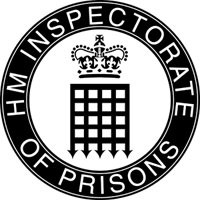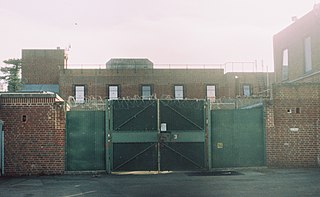
The Independent Police Complaints Commission (IPCC) was a non-departmental public body in England and Wales responsible for overseeing the system for handling complaints made against police forces in England and Wales.

The penal system of Japan is part of the criminal justice system of Japan. It is intended to resocialize, reform, rehabilitate and punish offenders. The penal system is operated by the Correction Bureau of the Ministry of Justice.

The Mental Health Act 1983 is an Act of the Parliament of the United Kingdom. It covers the reception, care and treatment of mentally disordered people, the management of their property and other related matters, forming part of the mental health law for the people in England and Wales. In particular, it provides the legislation by which people diagnosed with a mental disorder can be detained in a hospital or police custody and have their disorder assessed or treated against their wishes, informally known as "sectioning". Its use is reviewed and regulated by the Care Quality Commission. The Act was significantly amended by the Mental Health Act 2007. A white paper proposing changes to the act was published in 2021 following an independent review of the act by Simon Wessely.

His Majesty's Chief Inspector of Prisons is the head of HM Inspectorate of Prisons and the senior inspector of prisons, young offender institutions and immigration service detention and removal centres in England and Wales. The current chief inspector is Charlie Taylor.

Detention is the process whereby a state or private citizen lawfully holds a person by removing their freedom or liberty at that time. This can be due to (pending) criminal charges preferred against the individual pursuant to a prosecution or to protect a person or property. Being detained does not always result in being taken to a particular area, either for interrogation or as punishment for a crime. An individual may be detained due a psychiatric disorder, potentially to treat this disorder involuntarily. They may also be detained for to prevent the spread of infectious diseases such as tuberculosis.
The Independent Police Conduct Authority is an independent civilian oversight body that considers complaints against the New Zealand Police and oversees their conduct. It derives its responsibilities and powers from the Independent Police Conduct Authority Act. Under section 12(1) of the Act, the Authority's functions are to receive complaints alleging misconduct or neglect of duty by police employees; or concerning any practice, policy, or procedure of New Zealand Police and to take action as contemplated by the Act. It may also investigate any police incident involving death or serious bodily harm and make recommendations to the Commissioner of Police based on those investigations.

Yarl's Wood Immigration Removal Centre is a detention centre for foreign nationals prior to their deportation from the United Kingdom, one of 10 such centres currently in the UK. It is located near Milton Ernest in Bedfordshire, England, and is operated by Serco, which describes the place as "a fully contained residential centre housing adult women and adult family groups awaiting immigration clearance." Its population is, and has been, overwhelmingly female.
Stephen Shaw, CBE is former Prisons and Probation Ombudsman for England and Wales. He was first appointed Prisons Ombudsman in October 1999; from 1 September 2001 his remit was extended to take in complaints against the National Probation Service (NPS) from those under supervision in the community. His remit was further extended to take in complaints from those in immigration detention in October 2006. He departed in April 2010.
Deaths in custody, including police and prison custody, are subject to significant concern for a number of reasons, including the intrinsically vulnerable nature of some of those in custody, and the power imbalance inherent in the situation. Deaths in custody in England and Wales are looked at by inquests, and when it is possible that the state failed to protect the deceased's life are scrutinised using the 'right to life'.
The penal system in China is composed of an administrative detention system and a judicial incarceration system. As of 2020, it is estimated that 1.7 million people had been incarcerated in China, which is the second-highest prison population after the United States. China also retains the use of the death penalty with the approval of the Supreme People's Court, and there is a system of death penalty with reprieve in which the sentence is suspended unless the convict commits another major crime within two years while they are detained.

Pre-trial detention, also known as jail, preventive detention, provisional detention, or remand, is the process of detaining a person until their trial after they have been arrested and charged with an offence. A person who is on remand is held in a prison or detention centre or held under house arrest. Varying terminology is used, but "remand" is generally used in common law jurisdictions and "preventive detention" elsewhere. However, in the United States, "remand" is rare except in official documents and "jail" is instead the main terminology. Detention before charge is commonly referred to as custody and continued detention after conviction is referred to as imprisonment.

The UK Border Agency (UKBA) was the border control agency of the Government of the United Kingdom and part of the Home Office that was superseded by UK Visas and Immigration, Border Force and Immigration Enforcement in April 2013. It was formed as an executive agency on 1 April 2008 by a merger of the Border and Immigration Agency (BIA), UKvisas and the detection functions of HM Revenue and Customs. The decision to create a single border control organisation was taken following a Cabinet Office report.
Ombudsmen in Australia are independent agencies who assist when a dispute arises between individuals and industry bodies or government agencies. Government ombudsman services are free to the public, like many other ombudsman and dispute resolution services, and are a means of resolving disputes outside of the court systems. Australia has an ombudsman assigned for each state; as well as an ombudsman for the Commonwealth of Australia. As laws differ between states just one process, or policy, cannot be used across the Commonwealth. All government bodies are within the jurisdiction of the ombudsman.

Campsfield House was an immigration detention centre located in Kidlington near Oxford, England, operated by private prison firm Group 4 under contract with the British government. For 25 years, it was the site of a regular monthly protest from human rights campaigners and saw a number of internal protests, hunger strikes and two suicides. However, it was highly praised by the Chief Inspector of Prisons at the last full inspection in 2014. Campsfield closed in 2018.
Iceland is generally considered to be one of the leading countries in the world in regard to the human rights enjoyed by its citizens. Human rights are guaranteed by Sections VI and VII of Iceland's Constitution. Since 1989, a post of Ombudsman exists. Elections are free and fair, security forces report to civilian authorities, there is no state violence, and human rights groups are allowed to operate without restriction. Religious freedom is guaranteed, and discrimination based on sexual orientation is illegal.
In the United States, there is no unified federal ombudsman service. The role of handling complaints against federal authorities has to some extent been unofficially incorporated into the role of the US Member of Congress. This informal job has become increasingly time-consuming. It is subject to criticism on the grounds that it interferes with a legislator's primary duty, namely to read and be knowledgeable about a bill before casting his or her vote.
Prisoners in New Zealand are afforded numerous, but not all, human rights. Criticisms by a United Nations report in 2014 highlighted various issues that constitute ill-treatment of prisoners, such as remand prisoners being routinely held on lock-down for 19 hours per day, an increasingly strict prison regime, and the mixing of adult and youth prisoners.
Inquest Charitable Trust is a charity concerned with state related deaths in England and Wales. It was founded in 1981. Inquest provides support on state-related deaths, including deaths in custody and their investigation, to bereaved people, lawyers, advice and support agencies, the media and parliamentarians.
Immigration detention in the United Kingdom is the practice of detaining foreign nationals for the purpose of immigration control. Unlike some other countries, UK provisions to detain are not outlined in a codified constitution. Instead, immigration enforcement holds individuals under Powers granted in the Immigration Act 1971 and by the Home Office Detention Centre Rules (2001). The expressed purpose of immigration detention is to "effect removal; initially to establish a person's identity or basis of claim; or [implement] where there is reason to believe that the person will fail to comply with any conditions attached to a grant of immigration bail." Detention can only lawfully be exercised under these provisions where there is a "realistic prospect of removal within a reasonable period".

San Uk Ling Holding Centre is a detention centre in Man Kam To, Hong Kong. Located a few hundred metres away from the Man Kam To Control Point, a boundary crossing facility between Hong Kong and mainland China, the centre opened in July 1979 to house illegal immigrants prior to their repatriation.











